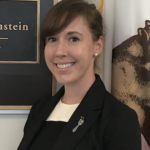It’s easy for rheumatologists and rheumatology professionals to feel frustrated by burdensome administrative tasks, complicated insurance policies and other healthcare hurdles. Advocacy offers a way to channel those complaints into constructive action, says Belinda Birnbaum, MD.








